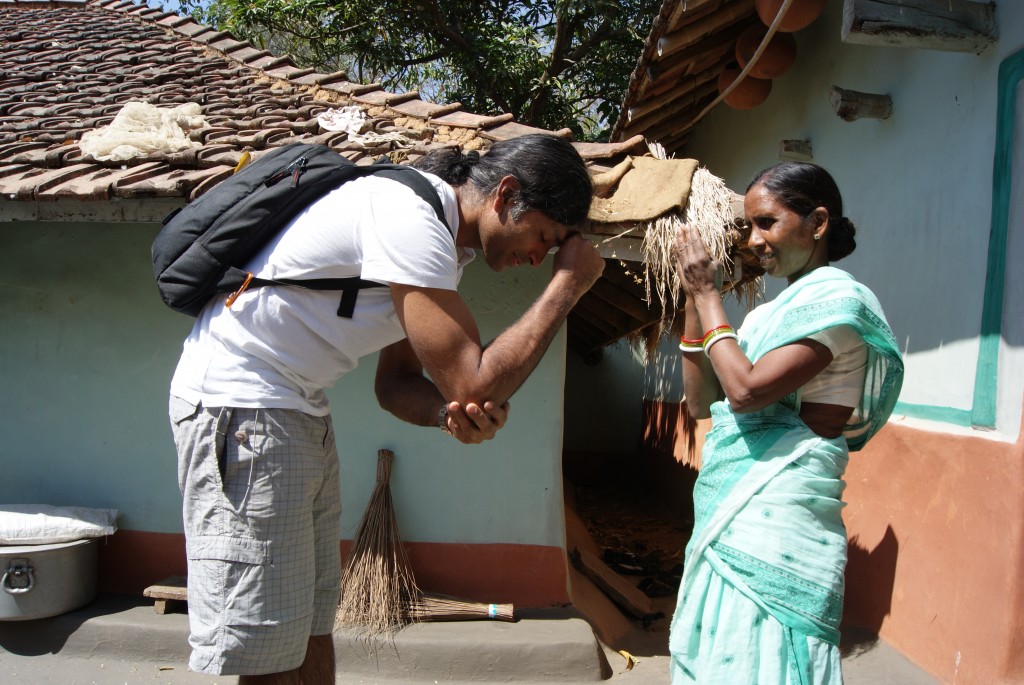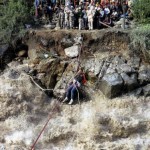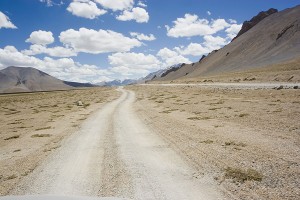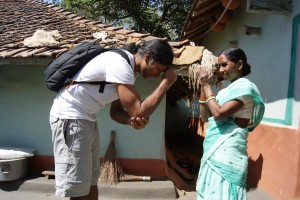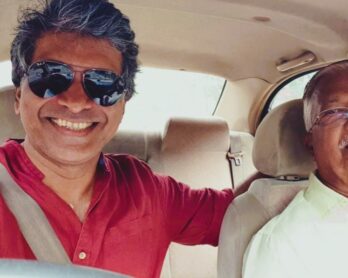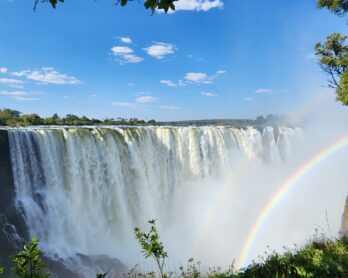The last time there was so much anticipation – and speculation – in the air was when Willy Wonka was giving away tickets to visit his chocolate factory. Today hundreds of thousands have applied for Mars One – the mission to colonise Mars with humans by 2023. The shortlisting is on and finally a handful will be chosen to be the Cooks and Columbuses of the Galactic Age. Even if we discard Nasa’s scepticism about this ambitious foray (or Mars One counting big on crowd funding to develop the technology, resorting even to reality television for spectator interest), the fact remains that 2023 is another decade away. Till then we will have to make do with what we got – the Earth.
‘Make do’ goes for our travel urges as well. The Earth is where you hang out unless you can shell out a $100 million to be a tourist on the moon. It’s probably okay to assume that there may not be many among us with this kind of, lunatic moolah? And with the tourism season just round the corner, it’s prudent we occupy ourselves with matters of the Earth. Read and mull over, talk about and practice what we can do to preserve the Earth and its treasures for those who follow in our footsteps, your own children included. Most of the time these are small and simple and practical steps – like choosing local guides or staying in locally-owned accommodations, treating the local customs and traditions with respect. This season, as you dust your backpack, rummage through guidebooks and amp up your sense of adventure, make a conscious decision – to travel with a conscience, to be a Responsible Traveller. And it’s about time too.
Detours have become an unspoken norm in every itinerary. A few extra days to wait out landslides or flashfloods, well-advised. Safety gears and travel insurance are finding increasing fervour. Tales of bookings gone awry are what our folks told us; by the time we reached, whole hotels would’ve disappeared – like that vacation villa in Florida. Travel farewells have taken more poignant dimensions. But we travellers have taken to all these like toads to high tide – we jaunt and we jostle, and survive most of the time. The relatively recent phenomena of entire tourist destinations getting deluged and decimated have seen different reactions from different quarters. Governments hollering at disaster management agencies to get their act together; how, one wonders, considering in Uttarakhand – the scene of the recent catastrophe which took away thousands of lives – the agency is helmed by the chief minister himself and hadn’t met even once over chai for six years till Armageddon.
The academia has reacted quite predictably. The highbrow crowd took two steps back, surveyed the debris through thick lenses and proclaimed ignorance at the root of the disaster. Rightly so, for if there isn’t ignorance, education would lose all relevance. And the heralded folk their shiny ribboned caps. So they struck – two furlongs ahead of the running, rabid dog. Courses in responsible tourism are offered all over the world today – and an increasing number of them in India. This is only serving to further alienate regular travellers like me – and maybe you – from the everyday urgency of travelling responsibly. Suddenly the tenets, simple to understand and put into practice, take on a halo of smirking intelligentsia. It gets shrouded in layers of unfathomable white papers, losing many vitals in deliberately jargoned podium-speak.
While the government plays ‘pass the buck’ with its many agencies and universities reduce them to study materials, we are running out of time. You might be a backpacker who finds all the comforts of a Club Med in a sleeping bag or a volunteer traveller who wants to lend a hand in a village farm or teach English in a community school in Spiti. You might even charter your own Beechcraft King Air into Necker Island or steer a Perini Navi into Monaco. Then, as an American Indian chief wrote in 1854: ‘We are part of the Earth and it is part of us. This shining water that moves in the streams and the rivers is not just water, but the blood of our ancestors. The water’s murmur is the voice of my father.’ Yes, what we see around us is a legacy and we are just the caretakers. Like what our fathers did we have to pass it on. Our only hope is that our kids will forgive us for the pillage and the plunder. Expect the government to take action or wait for expert opinions and committee findings and Godot will turn up.
Tweaking a little what Einstein said, in order to solve the problems we face today, we have to think – and act – differently from what we did when we created them. Responsible travel is slow travel, travelling in such a way as to know the earth and its inhabitants, their culture, art, history, traditions and livelihoods. As David Abernethy, Stanford University Professor Emeritus says ‘The people are a whole lot more interesting than wild animals. They are a whole lot more interesting than snow fields, than mountains. I mean mountains are great. But people beat mountains and beaches and jungles and the high seas every time.’ People may be at the core of responsible travel but it in no way means that the place takes a backseat. It’s about opening ourselves to new experiences and learning and emerge better persons ourselves. It’s a higher standard in travel. It’s realising that, to borrow from Ron Mader, you are not just reaching a destination but entering somebody else’s home. Hence it is important that your travels have to be less invasive and more beneficial to the hosts and the environment.
By being a responsible traveller, your actions benefit community members and aid local development. Apart from hiring local guides, buying souvenirs from locals helps in local economic development and often in conservation and heritage initiatives. True, responsible travel and staying with locals for the experience is easier said than done. Day two and most of us begin complaining about the standard of service. But get to know your hosts well and it will leave you richer than you imagined. It did for me when I stayed at a local’s house in Kohima, Nagaland during the Hornbill Festival. The hot water for my bath came in peeling paint buckets and a squealy pig in the sty next to my room woke me at drunken, ungodly hours. But staying with this local family, eating with them, observing them and listening to Mr Kiso talk about his grandfather, the Hornbill Festival played out before me like pages from history. During a previous edition I had stayed with some foreign tourists at a local hotel and the best I managed was marvel at the athleticism of Naga lads and bowled over by the prettiness of the women.
The highlights of responsible tourism can be summarised as:
- More enjoyable experience for tourists through more meaningful connections with local people, a greater understanding of local cultures, social and environmental issues.
- Engender respect between tourists and hosts and builds local pride.
- Makes positive contribution to the conservation of natural and cultural heritage.
- Generate better economic benefits for the local people.
‘I take very seriously the sense of our living these days in a global neighbourhood. And the first sensible thing to do in such circumstances, as well as one of the most rewarding things, is to go and meet the neighbours, find out who they are, and what they think and feel. So travel for me is an act of discovery and of responsibility as well as a grand adventure and a constant liberation.’ – Pico Iyer
Human settlement on Mars would indeed be a giant leap forward for mankind. The one-way astronauts, as the Mars One website claims, ‘wouldn’t be unlike the ancient Chinese, Micronesians and untold Africans and the Vikings who left everything behind to spend the majority of their lives at sea.’ No denying this. Depending on survival rates, the mission aims to bring new crew to the red planet every two years.
Even then I have this feeling that most of us will have to stick around for a long time; it makes sense to be responsible.
This is the first of a four-part series on responsible tourism; part two is about the different kinds of responsible tourism – community-based tourism, heritage tourism, etc – and what you can probably do.


